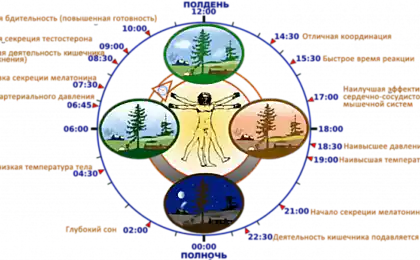645
24 hours

What last night? It depends on the circumstances. Twenty-four hours - a period of time in which the Earth completes one rotation on its axis. And it is never exactly twenty-four hours. Amazingly, this figure may vary in one direction or another by as much as fifty seconds! This is because the speed of Earth's rotation changes all the time - because of the friction caused by weather patterns, tides / tides and geological events. In an average year on the day of a second shorter than twenty-four hours. When these differences detected by atomic clocks, the decision was made to override a second as a fixed share of the "solar" days - or rather, millionshestsot-forty thousand. New second was coined in 1967 and defined as "the amount of time equal to 9,192,631,770 periods of the radiation corresponding to the transition between the two hyperfine levels of the ground state of the cesium-133 in the absence of external perturbation fields." Rather not say - only painfully dreary utter it all at the end of a long day. The new definition of a second means that the solar day is gradually shifted with respect to the atomic. As a result, scientists had to enter into the atomic year, the so-called "leap seconds" (or "leap seconds"), in order to harmonize the atomic year with solar. Last time "leap second" (the seventh from the time when in 1972 established the Coordinated Universal Time - UTC) was added December 31, 2005 on the orders of the International Service for estimating the parameters of Earth Rotation and Reference, based in the Paris Observatory. The good news for astronomers and those of us who love the clock keep pace with the movement of the earth around the sun, but a headache for computer programs and all of the equipment that is on space satellites. The idea of entering "leap second" will meet a strong resistance on the part of the International Telecommunication Union, which even made a formal proposal to abolish it by December 2007. Possible, of course, a compromise: to wait until the difference between Coordinated Universal Time (UTC) and Greenwich Mean Time (GMT) will reach exactly an hour (about 400 years) and had already put everything in order. In the meantime, the debate over what constitutes "real" time, continues.
Source: mirfactov.com/
























